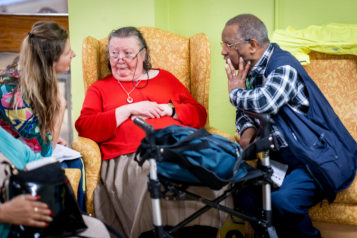City Council seeks feedback on home support

What is home support and why is it important?
Coventry City council puts in place contracts for home care/support services. This involves paid carers providing support to people in their own home one to four times a day so that they can continue to live there. For example, help with washing or taking medication.
Well-designed home support is important to meeting the needs of older people and for supporting working age adults with disabilities or mental ill health to live their lives as independently as possible.
Share your experiences
Do you have experience of home support services in Coventry through a family member /friend or yourself? If so please complete a short survey to help council to understand experiences in the design and improvement of Home Support services.
Please note the survey talks about ‘you’ but can be filled in by family/informal carers on behalf of those who have used services.
Did you know that there are three main types of Home Support in Coventry?
Long Term Home Support
Care and Support in people’s own homes. Services are often provided with input from other health and care professionals including District Nurses, Occupational Therapists, Social Workers and many others. This is to enable a whole health and social care system approach to keeping people healthy and independent at home.
Short Term Home Support
A time limited service of up to six weeks to prevent hospital admission or support hospital discharge through supporting people to acquire or reacquire skills to live independently at home. People who are discharged from hospital are supported to ‘get them back on their feet’ following injury or illness. Most people finish the service without the need for ongoing long term home support.
Mobile Night Carers
A mobile home support service for people in their own homes who need some night time support, that would have previously been discharged into a care home. The Mobile Night Carers service enables people to go home and still receive the support as part of their hospital discharge requirements.


